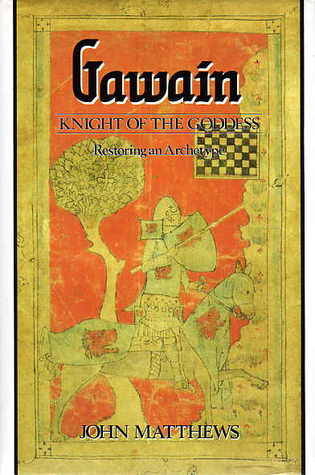#john matthews
John Matthews starts off with the claim that Gawain was originally the champion of the Goddess. I could accept this as an extension of Gawain’s connection to the various realms of Faery, and his obvious otherworldly connections, so I was interested to read the book. Unfortunately he lost me almost immediately when he started presenting evidence - from stories about other knights. It’s true that there is some confusion over names and spelling in many of the old texts, but there’s usually at least a family resemblance. When He started trying to convince me that adventures attributed to Lancelot were actually Gawain originally, I started getting skeptical.
He rarely backs up his claims with any textual evidence, instead relying on increasingly hypothetical situations that stray farther and farther from the Arthurian canon. In many places he bases an argument on a story he guesses must have existed at some point but was lost to time or was never written down. That’s just… not how scholarship works.
There were a few interesting tidbits about the Grail Quest, which was also the only time Matthews actually started backing up arguments with primary sources, but most of the first two thirds of the book was just speculation as he tried really hard to fit the stories to his theory. Gawain was often associated with damsels, with powerful queens and sorceresses, and with courtesy to ladies, and he could easily have written a book about Gawain and the Goddess from this perspective. Gawain is the knight with perhaps the clearest non-Christian roots, and has often been associated with the realms of faery and of death, and also with solar gods, as his strength waxes and wanes with the sun. The assertion that Gawain was associated with the Goddess is not totally outrageous, though it is a bit of a stretch. John Matthews, however, did not argue his case convincingly.
Post link

